At Pathfinder Advisory, we believe in 12 very particular character traits that drive human accomplishment and success. These 12 have been hand selected from the highest level of military and business best practices and are tried and true keys to leadership success. Each of our Staff members will be trained thoroughly on each, in very deliberate and practical ways, to anchor value to our client relationships and ensure sustainability and Success for the firm for decades to come.

Vision means you have a clear, compelling picture of your organization’s future and inspire others to pursue it. You assess market trends, organizational strengths, and emerging opportunities to define a bold yet achievable goal. By communicating this vision with passion and clarity, you align your team and stakeholders to move forward with purpose.
A visionary leader in the staffing industry, for example, sees beyond today’s challenges—such as talent shortages or pricing pressures—and envisions a future where their firm dominates through innovation or new markets. You gather insights from data, client needs, and industry shifts, then articulate a goal that motivates action. Your vision is not a vague dream but a focused destination, shared in a way that rallies your team and clients to achieve it together.
Strategy means you develop a deliberate plan to achieve your vision by leveraging resources, opportunities, and competitive advantages. You analyze challenges, prioritize actions, and align efforts to deliver measurable results. By thinking critically and acting decisively, you guide your organization through complexity with confidence.
In a staffing firm, a strategic leader designs a roadmap to outpace competitors—perhaps by targeting a niche market, optimizing sales funnels, or adopting advanced technology. You weigh risks and rewards, using data to inform decisions, and assign clear roles to execute the plan. Your strategy balances short-term wins, like improving placement rates, with long-term goals, such as market expansion. You communicate the plan clearly, ensuring every team member understands their part, and you adjust tactics as needed without losing sight of the objective.
Innovation means you embrace creative problem-solving to drive progress and stay ahead of the curve. You seek new ideas, technologies, and processes to improve efficiency, deliver value, and differentiate your organization. By fostering a culture of experimentation and calculated risk-taking, you inspire breakthroughs that transform performance.
For a staffing firm, an innovative leader might implement AI-driven candidate matching to cut placement time or adopt blockchain for secure contractor payments, gaining a competitive edge. You encourage your team to challenge assumptions, test new approaches, and learn from failures without fear. Innovation isn’t about chasing trends but solving real problems—like reducing recruiting costs or enhancing client satisfaction—in ways that create lasting impact. You balance bold ideas with practical execution, ensuring innovations align with your strategic goals.
Knowledge is the understanding of a science or art critical to your efforts. Knowledge means you actively seek and apply expertise to enhance decision-making and performance. You master your industry, stay current with trends, and share insights to empower your team. By combining technical know-how with practical wisdom, you build credibility and drive informed actions.
A knowledgeable staffing leader understands market dynamics, like talent supply shifts, and leverages tools like CRM systems to optimize operations. You stay ahead by studying competitors, attending conferences, and learning from clients. Your knowledge informs decisions—such as targeting a high-demand niche, yielding 25% revenue growth—and equips your team to execute with confidence. You foster a learning culture, encouraging continuous improvement across the organization.
Initiative means you take proactive action to seize opportunities and address challenges without waiting for direction. Initiative is taking action even though you haven’t been given orders. It means meeting new and unexpected situations with prompt action.You anticipate needs, identify solutions, and act decisively to drive progress. By leading by example, you inspire your team to take ownership and move the organization forward.
In a staffing firm, initiative looks like spotting a client’s unmet need and proposing a tailored solution, securing a new contract. You don’t wait for perfect conditions; you act on partial data, if necessary, adjusting as you go. Your proactive approach—say, piloting a new recruiting tool before competitors — sets the pace for your team. You empower others to take calculated risks, fostering a culture of ownership and agility.
Courage is what allows you to remain calm while recognizing fear. Moral courage means having the inner strength to stand up for what is right and to accept blame when something is your fault. Courage means you face uncertainty, risk, and adversity with resolve to do what’s right for your organization. You make tough decisions, confront challenges head-on, and stand by your principles. By demonstrating boldness, you inspire confidence and trust in your team and stakeholders.
Courage is the ability to face adversity with strength and calm. You are going to face difficult challenges and a courageous staffing leader makes tough decisions in growing your company; such as firing clients, disciplining your staff and more; and displaying courage to your team in these situations provides an example that keeps them calm and focused, and reinforces the fact that you are going to get through these challenges together as a team. Your courage—backed by data and ethics—rallies your team to persevere through setbacks, like a 10% market downturn.
Decisiveness means that you are able to make good decisions without delay. You gather all relevant facts, weigh them against each other, and act calmly and quickly. By announcing your decisions in a clear, firm, professional manner, you provide direction and maintain momentum.
In staffing, a decisive leader balances speed with analysis, using smart data to guide choices. Your clear communication—e.g., outlining a sales strategy shift in a team meeting—ensures alignment and swift execution. Decisiveness prevents “paralysis by analysis”, and doubts in leadership capability, keeping your firm strong and agile in a fast-moving market. In most cases, perfect is the enemy of good. Instead, use a high level of confidence in the analysis of the facts, and make an informed judgment to move forward.
Bearing is the way you conduct and carry yourself. A person’s bearing is defined as creating a favorable impression in appearance and personal conduct at all times and driven with purpose. Your manner should reflect alertness, competence, confidence, and control, projecting a strong leadership presence. You maintain poise under pressure, uphold ethical standards, and inspire respect. By modeling discipline, you set the tone for your team’s behavior and reputation.
A staffing leader with strong bearing remains calm during a client crisis, like a missed placement deadline, resolving it with professionalism that retains trust. Your demeanor—confident handshakes, clear communication, and ethical conduct—builds credibility with clients and staff. Good leaders channel that demeanor and drive it into others by setting the example for them in terms of attitude and behavior. Your team needs to see you as their confident leader, not the frustrated, tired, stressed human you may be feeling like at any particular moment.
Endurance is the mental and physical stamina that is measured by your ability to withstand pain, fatigue, stress, and hardship. You persevere through setbacks, maintain focus, and support your team under pressure. By staying resilient, you ensure long-term success for your organization.
In staffing, endurance is pushing through a tough quarter of weak results, working late to refine strategies that recover lost revenue. You manage stress, prioritize health, and model resilience, inspiring your team to stay committed during market slumps. Your stamina ensures consistent leadership, whether navigating a client loss or scaling operations over months. Good leaders know that it takes mental and physical stamina to weather adversity. They will ensure that they are well rested, are eating healthy and exercising to increase their endurance and reduce stress and be present in strength for their team.
Loyalty means that you are devoted to your organization and your team; to your seniors, peers, and subordinates. You owe unwavering loyalty up and down the chain of command. Loyalty means you demonstrate unwavering commitment to your team, to your clients, and to the vision. You prioritize their success, build trust through reliability, and uphold shared values. By fostering mutual loyalty, you create a cohesive, motivated team that drives results.
A loyal staffing leader stands by their team during a client dispute, advocating for fair resolution that retains staff trust. You honor commitments, like delivering promised results to a client, even at personal cost. Loyalty is often regarded as the truest measure of a good leader – how loyal they are to others, and as a direct result of that loyalty – how loyal others are to them. True loyalty should not be easily given, but must be earned. The longer your loyal relationships endure, the more you and your organization are perceived positively by others.
Unselfishness means that you avoid making yourself comfortable at the expense of others. Be considerate of others. Give credit to those who deserve it. Unselfishness means you prioritize the needs of your team, clients, and organization above your own interests. You share resources, credit, and opportunities to empower others. By putting the collective first, you build trust and drive collaborative success.
Great leaders are unselfish. They put their team’s welfare ahead of their own. An unselfish staffing leader gives the junior sales rep credit for landing a major client win they supported. They allocate budget to team training over personal perks. Your focus on the success of all others - whether mentoring staff or solving client pain points - creates a culture of collaboration that drives firm-wide results.
Passion is defined as a sincere interest and exuberance in the performance of your duties. If you are passionate, you are optimistic, cheerful, and willing to accept the challenges. Passion means you lead with infectious enthusiasm and commitment to your organization’s mission and people. You inspire others through your energy, dedication, and belief in the work. By channeling passion into action, you motivate your team to achieve extraordinary results.
Passion is personal connection - to an idea, a vision, a colleague. A passionate staffing leader rallies their team to hit a record placements in a month, by sharing a contagious belief in the firm’s mission to connect talent with opportunity. Your enthusiasm - as evident in client pitches or team huddles - boosts morale during a tough market. Passion fuels persistence, turning challenges like a 5% sales dip into opportunities for innovation.
Passion is key to influence others to take action.

At Pathfinder Advisory, our motto, “A Trusted Partner for What’s Next,” is our promise to stand shoulder-to-shoulder with you, no matter the challenge, and get you where you want to go.
Copyright © 2025 Pathfinder Advisory. All Rights Reserved.
Design & Developed by : Prosketch Technologies

A Trusted Partner For What’s Next